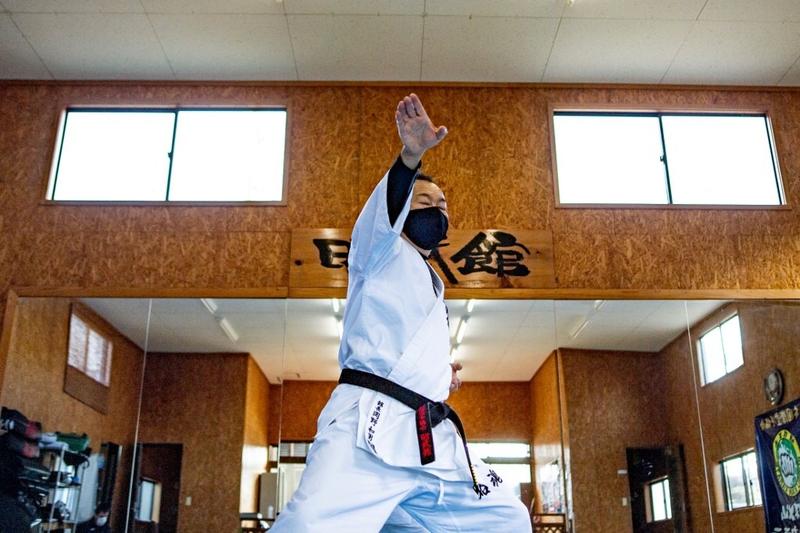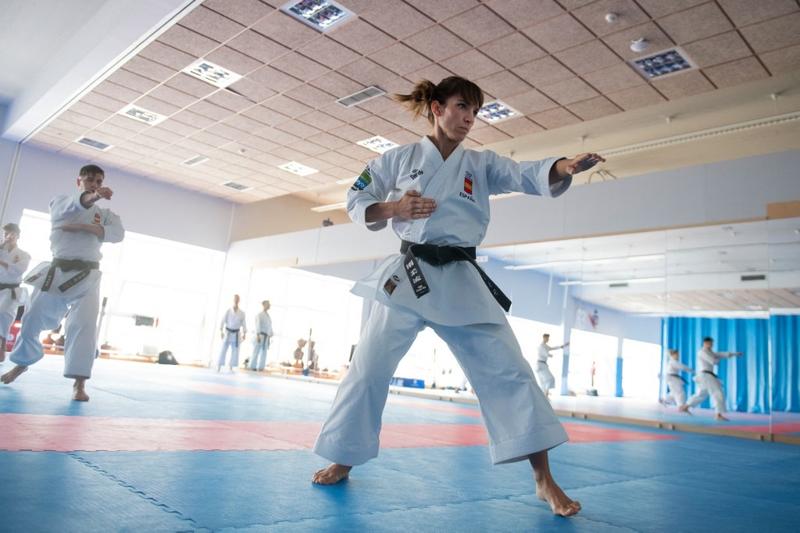 This picture taken on Jan 29, 2021 shows a karate teacher practicing karate at his "dojo" in Hidaka, Saitama Prefecture, suburban Tokyo. (PHILIP FONG / AFP)
This picture taken on Jan 29, 2021 shows a karate teacher practicing karate at his "dojo" in Hidaka, Saitama Prefecture, suburban Tokyo. (PHILIP FONG / AFP)
TOKYO - Karate has fought a long, hard battle to earn its place as an Olympic sport.
Despite its 100 million practitioners worldwide, a solid place in popular culture and a rich history that some say can be traced back to the 15th century, the Japanese martial art’s bid to join the Olympics had been rejected three times, including, initially, for Tokyo 2020.
It was only thanks to the provision under the “Olympic Agenda 2020” reform blueprint adopted in 2014 that Games hosts were allowed to propose a number of sports and karate was granted a second shot.
Lobbied by then-chief cabinet secretary and current Prime Minister Yoshihide Suga, karate officially won its place two years later to join fellow Asian martial arts judo and taekwondo on the big stage in Tokyo.
Unfortunately for Japan’s karate federation, however, entering the Olympic sphere also exposed the rampant bullying of one of its leading athletes by a senior federation member in a scandal that sent shockwaves through the local karate world.
Lobbied by then-chief cabinet secretary and current Prime Minister Yoshihide Suga, karate officially won its place two years later to join fellow Asian martial arts judo and taekwondo on the big stage in Tokyo
With just four months to go until karate’s debut at the Games, Japan Karatedo Federation (JKF) technical director Masao Kagawa was forced to resign when karateka Ayumi Uekusa blew the whistle - through the Olympics hot-line - on his abuses and unsanctioned use of a bamboo stick during training that caused her a serious eye injury.
ALSO READ: Poll: Half of Japanese predict Olympics will be held
The federation quickly dismissed Kagawa as head of the sport’s “Player Strengthening Committee” and replaced him with a popular former karate champion, Rika Usami, known as “the queen of kata”.
With the scandal behind it, karate will be looking to Tokyo 2020 to demonstrate why it deserves to be a core Olympic sport.
 Spanish world champion in karate kata Sandra Sanchez trains during an AFP photo session at the Centre of High Performance of the High Council of Sports in Madrid on June 12, 2020. (PIERRE-PHILIPPE MARCOU / AFP)
Spanish world champion in karate kata Sandra Sanchez trains during an AFP photo session at the Centre of High Performance of the High Council of Sports in Madrid on June 12, 2020. (PIERRE-PHILIPPE MARCOU / AFP)
Karate has been ruled out for Paris 2024, though it will have a place at the postponed Youth Olympics in Dakar 2026 following a debut at the 2018 youth event in Buenos Aires.
In the “kata” category, in which athletes demonstrate offensive and defensive techniques against a virtual opponent, Japan’s Ryo Kiyuna is a favourite to win what would be the first gold medal for his native Okinawa prefecture, the birthplace of karate.
For female kata, a close contest is expected between Spanish world champion Sandra Sanchez and Japan’s Kiyou Shimizu after their memorable tie-breaker match at the sport’s top event in 2019.
READ MORE: Olympic medallist adjusts to taekwondo training in living room
The “kumite” sparring category will involve 60 athletes in three weight categories each for men and women, with France’s Steve Dacosta, Azerbaijan’s Rafael Aghayev, China’s Xiaoyan Yin and Turkey’s Serap Ozcelik Arapoglu among those to watch.


